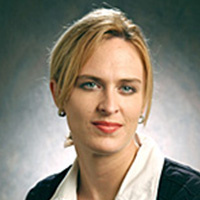Amesville Criminal Lawyer, Ohio
Kendra L. Bunn
✓ VERIFIEDWhite Collar Crime, Education, Immigration, Employment, International
Since 1999, Ms. Bunn has dedicated her entire career to the practice of immigration law. She was one of the first female attorneys to practice immigra... (more)
John Philip Lavelle
Litigation, Personal Injury, Federal Appellate Practice, Criminal
Status: In Good Standing Licensed: 42 Years
Robert Russell Rittenhouse
Litigation, Criminal, Civil Rights, Personal Injury
Status: In Good Standing Licensed: 19 Years
Sky Pettey
Construction, Litigation, Estate, Criminal, Accident & Injury
Status: In Good Standing Licensed: 24 Years
Susan Louise Gwinn
Accident & Injury, Criminal, Estate, Traffic
Status: In Good Standing Licensed: 45 Years
Lisa Ann Eliason
Government, Criminal, Religious Discrimination, Administrative Law
Status: In Good Standing Licensed: 37 Years
Patrick Chorpening Mcgee
Litigation, Federal Appellate Practice, Criminal, Civil Rights
Status: In Good Standing Licensed: 46 Years
Robert Patrick Driscoll
Power of Attorney, Litigation, Criminal
Status: In Good Standing Licensed: 32 Years


